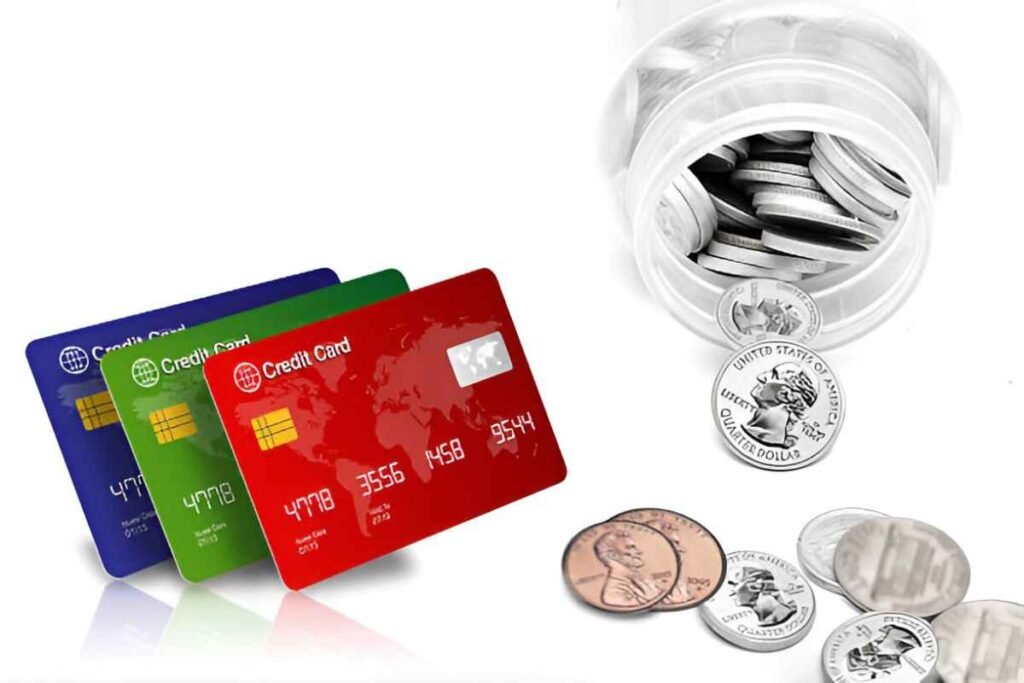As I think back to when I first considered applying for a credit card, I recall the mixture of excitement and confusion that came with the decision. It wasn’t just about getting a shiny piece of plastic; it was about taking my first steps into managing credit, building my financial future, and gaining access to a range of benefits. But, as with anything new, the journey came with its challenges and a steep learning curve.
This article aims to guide you through the process of getting your first credit card. I’ll share my personal insights, practical examples, and answer common questions that might come to your mind as a first-time applicant. Whether you’re unsure about how to choose the best card or anxious about managing credit, I’ve got you covered.
Table of Contents
Understanding What a Credit Card Is
In simple terms, a credit card is a tool that allows you to borrow money from a bank or financial institution up to a certain limit, which you promise to repay later, usually with interest if you carry a balance. The key concept here is that the money you spend is borrowed, not your own. So, while it can help build your credit score, it also requires responsible usage.
When you first get a credit card, you’re often given a credit limit, which is the maximum amount you can charge to the card. For example, if you have a credit limit of $1,000 and you make a purchase of $200, you’ve used up 20% of your available credit. If you then repay the $200, your available credit goes back up to $1,000.
The idea behind using a credit card is to build your creditworthiness. By managing your card properly—paying bills on time, keeping your balance low, and not missing payments—you build a positive credit history. This, in turn, makes it easier to secure loans and get better interest rates in the future.
Why You Might Want a Credit Card
There are several reasons why applying for a credit card as a first-timer makes sense. Here are a few of the most common ones:
- Building Your Credit History: Your credit history is crucial for things like securing a mortgage, renting a home, or applying for loans. A credit card is one of the easiest ways to start building this history.
- Convenience: A credit card is much more convenient than carrying cash, especially in a world where online shopping is ubiquitous. Plus, many services and subscriptions require a credit card for payment.
- Rewards and Benefits: Many credit cards offer rewards, like cashback, points, or travel miles, for every dollar you spend. These rewards can be great if used responsibly.
- Emergency Buffer: Life can be unpredictable, and sometimes you need access to quick funds. Having a credit card can be a safety net in such situations.
The Different Types of Credit Cards for First-Time Applicants
As I navigated the sea of credit card options, one of the first challenges I faced was understanding which card was right for me. There are many different types of credit cards, each with its features. Let me break down the most common types:
- Student Credit Cards: If you’re in school or a young adult, this type of card is tailored to those with little to no credit history. They tend to have lower credit limits and fewer benefits but are a good starting point.
- Secured Credit Cards: Secured cards are backed by a deposit you make upfront. This deposit serves as collateral and often becomes your credit limit. These are great for those looking to rebuild or establish credit.
- Unsecured Credit Cards: These cards don’t require a deposit and are based on your creditworthiness. For first-time applicants, these might be a bit harder to get, but some financial institutions offer cards with low credit limits for beginners.
- Rewards Credit Cards: These cards offer rewards, like cashback or travel miles, for every dollar you spend. However, they usually require a better credit score, so they may not be the best choice for someone just starting.
How to Apply for Your First Credit Card
When I first applied for my credit card, I didn’t fully understand the process, but here’s how I approached it.
- Check Your Credit Score: Before applying, I checked my credit score. If you don’t have a credit history, you may not have a score yet. However, if you’ve had any financial activity in the past, like a student loan or a bill in your name, you might have a score. Checking your score can help you gauge what cards you may be eligible for.
- Compare Cards: I looked for credit cards with no annual fees and low interest rates. I also considered the rewards programs and whether they would be useful for me. At this stage, it’s good to compare cards using comparison tables like the one below.
| Card Type | Annual Fee | APR (Interest Rate) | Rewards Program | Credit Limit Range |
|---|---|---|---|---|
| Student Credit Card | $0 | 15-20% | No rewards | $500 – $1,000 |
| Secured Credit Card | $25-$50 | 18-24% | No rewards | $200 – $2,000 |
| Unsecured Credit Card | $0-$99 | 14-25% | Cashback/Points | $500 – $5,000 |
| Rewards Credit Card | $0-$95 | 14-24% | Cashback/Travel | $1,000 – $10,000 |
- Fill Out the Application: Once I chose the card, I filled out the online application. I had to provide personal information, including my income, employment status, and Social Security number. The bank uses this information to assess my ability to repay the credit.
- Wait for Approval: After applying, I waited for approval. It can take anywhere from a few minutes to a couple of weeks, depending on the bank and the type of card.
What to Do After You Get Your Credit Card
Once my application was approved, I felt a sense of relief. But I quickly realized that having a credit card is just the beginning. I needed to be smart about using it.
- Read the Terms and Conditions: The first thing I did was read the fine print. I wanted to understand the interest rates, fees, and any other charges I might face. Many credit cards have an introductory 0% APR for the first few months, so I made sure to use that to my advantage.
- Set a Budget: A crucial step was setting a budget. Even though I had a credit card with a $1,000 limit, I didn’t want to spend recklessly. I set a limit on how much I’d charge each month, aiming to stay below 30% of my credit limit. This is important for maintaining a good credit score.
- Make Timely Payments: I cannot stress this enough—paying your bills on time is the most important thing you can do with a credit card. Late payments lead to late fees, higher interest rates, and a drop in your credit score. I made sure to set up reminders for when my payment was due.
How to Manage Your Credit Card Wisely
To make the most of your credit card, here are a few tips I learned along the way:
- Don’t Max Out Your Card: Using your entire credit limit can negatively impact your credit score. Ideally, you should use no more than 30% of your credit limit each month.
- Pay More Than the Minimum Payment: Credit cards come with minimum payments, which are usually quite low. However, paying only the minimum means you’ll be paying interest on the remaining balance, which can add up quickly. I always tried to pay my balance in full each month to avoid interest charges.
- Monitor Your Statements: I always made sure to keep an eye on my credit card statements for any errors or unauthorized charges. If you notice any discrepancies, it’s important to report them right away.
Common Pitfalls to Avoid as a First-Time Credit Cardholder
As a beginner, there are several mistakes I made early on, and I want to help you avoid them:
- Missing Payments: Missing a payment once can be a costly mistake, both in terms of fees and damage to your credit score. If you can’t pay the full balance, try to pay as much as you can.
- Carrying a High Balance: Carrying a high balance from month to month not only racks up interest but also hurts your credit utilization ratio. Try to pay off your balance as soon as possible.
- Opening Too Many Cards: While it’s tempting to apply for multiple cards, especially with the idea of rewards or cashback, doing so can lower your credit score temporarily due to hard inquiries.
Conclusion
Getting your first credit card is an important step toward building financial independence and establishing good credit. But as I’ve shared, it’s essential to approach credit cards with responsibility. By understanding the types of cards available, managing your spending, and making timely payments, you can set yourself up for success. Don’t rush into applying for every card you see—take your time, weigh the options, and make sure you understand how credit works.
My journey with my first credit card wasn’t always perfect, but with a little care and attention, I learned how to make it work for me. I hope this article has provided you with the knowledge and confidence to take that first step into the world of credit cards.





